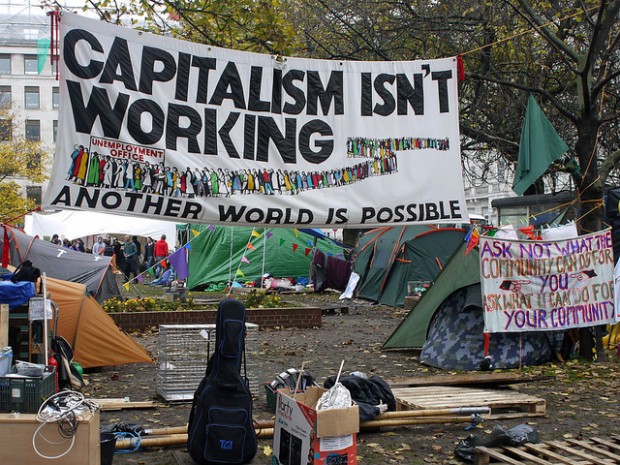You have no items in your cart. Want to get some nice things?
Go shopping“…We are an established online company… We can provide daily ongoing work at a rate of $1/100 words or 1 cent per word. Most of our writers are able to get as much work as they can handle daily.
Must be able to meet deadlines and check email multiple times per day, be responsive, etc. Guidelines will be provided for all writing jobs and this can easily become a main source of income for the right writers…”
***
When I was younger, I went on an interview for an editorial assistant job at a large newspaper company. It was the Holy Grail of employment for a budding writer: a paid position – a modest stipend – with the possibility of publication and permanent hire. I was still an undergrad, but I knew the position was the zenith of (underpaid) writing work: having the company on my resume alone would have surely secured my chances of dodging the life of a starving English major.
As it goes.
Armed with a two-inch binder full of writing clips, I passed my work to an editor for review and tried to quiet the loud growl of an anxious stomach. I could feel small beads of sweat forming at the nape of my neck and under my arms as I waited for feedback.
“Well,” the editor said sardonically, “someone has gotten a lot of great work for free.”
The online publication I had written for was virtually unknown (and still is), although I managed to publish a substantial amount of writing over the course of many (many) months. For free.
No big deal, I thought. It looked great on my resume. So I tried to explain the hows and whys of my extensive collection of clips: It was an internship, I really love writing. I don’t have a degree yet and it’s a stepping stone of sorts.
Bullshit, the editor said. Obviously, she continued, my love and talent for writing had been “exploited.” And me being a naïve, barely 20-something, had absolutely no idea.
“You should have gotten compensated for all of this,” she said.
Should have, probably. It would have been nice to get a paycheck for all of that work.
But was that even feasible?
***
Writing for free (or being severely underpaid) is sort of an unofficial “rite of passage” one takes on the road from rookie to real writer. It’s the easiest way to pad your resume and create credibility for (hopefully) a paying gig in the future. Hopefully.
Let me be clear: Rookie writers should write for free – to a point. Everyone has to start somewhere. You can’t expect to become an editing overlord if you don’t pay your dues as a writing pariah (sorry, interns.) Rare is the case of a rookie writer snagging a coveted full-time staff position at a well-known publication. Boys and girls, that’s a fairytale.
I’ve done it. Most of my peers and colleagues have done it – usually in the form of internships for established companies, side assignments for jobs. To be completely honest, there aren’t many companies that would hire people with limited-to-no previous writing experience and pay them a salary, on top of that.
Actually…there aren’t many organizations that can afford to pay staff at all, nowadays.
From an economical standpoint, some companies just simply can’t pay their writers. In the past, most publications thrived on revenue generated from advertising sales. They would sell large chunks of space -mostly in printed publications – as there was a world before the invention of the Internet. Back then, companies could afford the pay staff, keep the lights on, purchase office supplies. Things were… different.
And then, without warning, a writer’s life as we know it, drastically changed.
Not to be dramatic or anything, but inventions like social media have been a curse for the writing industry. Sure, it’s now easier to market a publication to a wider audience, but all of that money once funneled into newspaper and magazine ads has dried up.
And that leaves publications no choice but to look for cheaper ways to operate: fire staff, hire cheaper employees or cease to exist.
Tough decisions.
***
“People who would consider it a bizarre breach of conduct to expect anyone to give them a haircut or a can of soda at no cost will ask you, with a straight face and a clear conscience, whether you wouldn’t be willing to write an essay or draw an illustration for them for nothing. They often start by telling you how much they admire your work, although not enough, evidently, to pay one cent for it. “Unfortunately we don’t have the budget to offer compensation to our contributors…” is how the pertinent line usually starts. But just as often, they simply omit any mention of payment.”
-Tim Kreider, “Slaves of the Internet, Unite!”
(Published in the New York Times, Oct. 26, 2013)
And then there’s the manipulation aspect of the modern writing world.
It’s nothing new, obviously – people have been pulling scams since the dial-up Internet connection Stone Age days. Just like those suspicious email chains from mysterious royalty promising to wire you large sums of money, someone had to fall for the hoax before or else it wouldn’t still exist.
As I was recently sorting through online job posts I’m probably under- or overqualified for, I noticed a large number of sketchy ads geared toward writers, sinisterly intertwined with legitimate postings.
“…While we cannot currently offer financial compensation for your contributions there are many other benefits. You will have your literary work published on a global scale, you can work hours that are convenient for you and you will be one of the founding members of ______’s success. And that means when we gain infamy you WILL be compensated.”
(…Infamy? Is there an estimated time frame for that?)
“…For the moment, this is an unpaid internship. The person hiring is well situated in the publishing and media worlds and will try to be useful in regard to future positions….”
(So in other words, the person hiring is rich, but cannot afford to cover an intern’s transportation costs nor guarantee a recommendation for a paying job?)
“…You might be a step away from being read by hundreds of thousands of readers.”
(Key word: Might.)
Misleading postings like the aforementioned make the market difficult for legitimate publications – large and small – that are just strapped for cash.
In other words: It’s becoming more and more difficult to tell the difference between an honest gig and one that wants your soul, in lieu of free writing.
Comrades, this needs to stop. It only fosters the false belief that it’s okay for companies to solicit our services, sans proper compensation. It’s one thing if a company can’t afford to pay its writers – but would if it could. But when an organization voluntarily foregoes paychecks to benefit its owners/Milky Way galaxy/unknown/mysterious abyss – and not its workers?
Unforgiveable.
I caught up with a few colleagues of mine and asked for their thoughts on the great unpaid writing debate – why it makes sense and why it sometimes doesn’t.
“I’d say it’s useful to a point, then it’s not,” said Jason Chirevas, deputy editor of Home Town Media Group in New York. “It can be good for having things to show publications further up the food chain what you’re capable of, but after a certain point, I think you have to draw a line under that body of work and say, ‘Ok, I’ve done this, now I have to get paid.’”
True indeed.
“I wrote for free for two different, very un-read but still kind of read, music websites and the people there weren’t really the best to work with,” said Sarah Paolantonio, a fellow MFA candidate at Sarah Lawrence College in New York. “The first published typos and was overall lazy on timing – which, as you know, is the most important thing in online music publications.”
“…This position is unpaid, but it is a great opportunity to build your portfolio around interesting, fun and relevant topics. If you kick ass over the next few weeks you’ll be among the first writers we ask to become part of our team of freelancing ninjas. That means money, and perks…”
(And if you don’t “kick ass,” as per the company’s standards, then what?)
“We work in an industry where people have reduced our work to ‘content,’ and where an expert is not valued any more than an intern,” said Mark Lungariello, digital editor for Westchester County Business Journal, also based in New York. “And for all the talk of how helpful it could be, I’ve yet to see it. Last, I even question whether it is legal to ask someone to do the same job a full-time employee could do but not pay them for it.”
***
“In fairness, most of the people who ask me to write things for free, with the exception of Arianna Huffington, aren’t the Man; they’re editors of struggling magazines or sites, or school administrators who are probably telling me the truth about their budgets. The economy is still largely in ruins, thanks to the people who “drive the economy” by doing imaginary things on Wall Street, and there just isn’t much money left to spare for people who do actual things anymore.”
-Tim Kreider, “Slaves of the Internet, Unite!”
(Published in the New York Times, Oct. 26, 2013)
In the immortal words of Che Guevara, “The revolution is not an apple that falls when it is ripe. You have to make it fall.”
Folks, the apple has officially fallen.
Shame on the publications that manipulate talented young writers and fail to honor their skills. You are half of the problem. My advice to rookie writers: If you write for free, work with a publication that nurtures your budding skills and has a bit of credibility. Do your research, ask questions.
The other “half” of the problem is the global economy – which as you all know, is pretty much doomed in a really bad place right now…
And the other “half” (yes, I have a math problem) are writers who aren’t realistic about where they are at in their careers. The promise of exposure and notoriety via 40 hours of voluntary work can often seduce young writers (even more so if said position is offsite – meaning pajama work-wear.) Heck, the promise of exposure and notoriety via 40 hours of semi-paid work can even seduce weathered writers (read: will work for shoes, shelter and a steady supply of food!) But the truth is, even if you put in these kind of hours, many publications still may not be able to pay you the way you want.
If you’re a more seasoned writer (ie. older and wiser) writing for free only prolongs your residence in your parent’s basement and can make it difficult for the rest of us to defend our right to get paid for our talent – in both the present and future. Know when to draw the line.
So consider this writer manifesto a call to arms. Yes, that’s right: My writer brethren across the globe, it’s time to stand up for our civil liberties and start a revolt.
In the written form, at least.

About Rachel McCain
Rachel McCain is an MFA candidate at Sarah Lawrence College in Bronxville, New York. She has written for The Source Magazine and previously served as deputy editor of Home Town Media Group, a small community newspaper company in New York. Currently, Rachel working on a nonfiction book manuscript. For more information, visit Rachelmccain.net.




